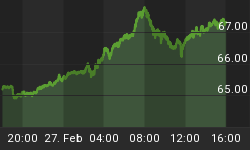Already highly competitive and having a tough time creating an edge, 2020 further decimated the restaurant industry. Ravaged by the pandemic, restaurant and food-service sales were $240 billion below pre-pandemic forecasts.
More than 110,000 eating and drinking establishments closed last year, either temporarily or for good, with 2.5 million jobs lost.
We saw a lot of businesses fail in 2020, but with lifted restrictions, the restaurant industry is making a slow but sure comeback.
The restaurant industry is usually one of the first industries to bounce back, because people will always want to go out. When restrictions lift, people flock to in-door dining because everyone’s just excited to get back out.
Another element to consider is food delivery. A lot of fast casual/ fast-food chains weren’t hit nearly as hard because they either had their own delivery service or worked through a third party such as DoorDash or GrubHub.
Here are 3 restaurant stocks we think it’s worth looking at from a recovery standpoint:
#1 Chipotle Mexican Grill, Inc. (CMG)
Stock in Chipotle saw a 38% drop in March 2020 when the lockdowns started, but they quickly bounced back to even higher than pre-pandemic levels. CMG finished 2020 up over 144% from its lows in March. The fast-casual chain gave themselves an edge because they offered free delivery service through much of 2020. That trend is persisting over into 2021, with the stock now up over 44% YTD.
This growth looks to be sustainable as Chipotle is continuing to expand its outreach, despite the pandemic. Chipotle is helping to reconceptualize what quality means in fast food. It’s doing that through the quality of service and food, and offering fair wages to its employees.
This year, Chipotle announced its starting wage would be lifted to $15 per hour, matching the minimum called for by many American labor activists. Having opened about 300 new stores since 2020, Chipotle CEO Brian Niccol is confident that the chain will continue to grow nationally and internationally, and rightfully so it seems.
#2 Yum Brands, Inc. (YUM)
Yum Brands is the parent company of some of the biggest fast food chains in the world, including KFC, Taco Bell and Pizza Hut, as well as many other smaller chains worldwide. YUM has over 50,000 restaurants in 150 different countries.
Fast food chains took quite a hit in 2020 with the pandemic, forcing them to quickly rethink how they serve their customers. The faster thinkers survived.
Yum Brands has had its subsidiaries shift focus to drive-thrus and mobile orders. It has also opted to make more room in the parking lot for multiple drive-thru lanes as opposed to indoor dining.
And the stock has been on the rise this past year as a result, nearly doubling its market cap from $20 Billion to $37.6 Billion. The stock is up 16% over the last six months, but it has begun to fluctuate in the last month or so. This could continue as Yum Brands tries to keep up with consumer food trends, but surely the parent company of some of the largest international food brands will continue to have long term potential as they iron out kinks.
#3 Dine Brands Global (DIN)
Dine Brands Global is a company with a much smaller market cap of $1.39 billion--but it has a lot of potential for the future.
Currently, Dine Brands Global oversees IHOP and Applebee’s Bar & Grill. CEO John Payton is looking toward expansion, however. Between the two franchises, Dine Brands Global operates over 3,530 restaurant locations in 17 countries around the world.
DIN has been a strong performer this year as Covid-19 restrictions ease and dining out resumes. Since January, the company’s share price has risen 35% to a bit over $81 per share.
In the second quarter of 2021, the company reported revenue of $233.6 million, up from $109.7 million in the same period last year at the height of the global pandemic. Q2 EPS came in at $1.94 and beat analysts’ expectations by 27 cents.
In spite of its gains already this year, Wall Street investors remain bullish on Dine Brands Global’s prospects. The median price target on the stock is currently $110, suggesting that the share price has a further 41% to run.
















